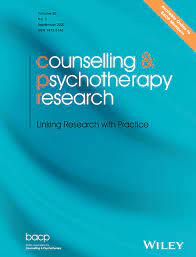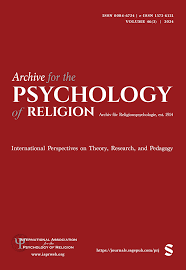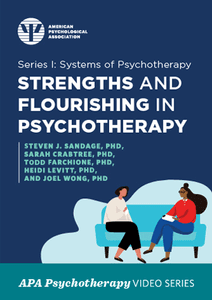2024 Research Wrap Up
As we reach the end of 2024, the Danielsen Institute is proud to share some information our many presentations, publications, and interviews disseminating our research. In addition to publications specific to our Peale project of Helping the Helpers, our team shared Danielsen Institute research in the following venues:

Crabtree, S.A., Captari, L.E., Hydinger, K.R., Jankowski, P.J., & Sandage, S.J. (2024). Virtue engagement in contemporary relational psychotherapy: A mixed method practice-based study. Counselling and Psychotherapy Research. http://doi.org/10.1002/capr.12856
Abstract
Positive psychology and virtue ethics traditions suggest that virtue development is a pathway to well-being, but few studies have examined how psychotherapy in naturalistic settings contributes to clients’ virtue engagement. This study was conducted at a community mental health clinic specializing in contemporary relational psychotherapy (CRP) in the northeast United States. The embedded, explanatory mixed method design included (a) longitudinal mixture-modelling to identify clients showing gains in relational virtue engagement over time, and (b) interviewing a subsample (N = 15) of these clients. Our findings suggest that virtue engagement in CRP emerges (a) within the dynamic conditions of the alliance and (b) through holistic attunement to clients’ identities, experiences, mental health and growth in capacities that promote wisdom and flourishing. Clinical and research implications and future research directions are discussed.
Captari, L.E., Guterres, K., Oleson, D., Devor, N., & Sandage, S.J. (2024). Sources of meaning and hope associated with well-being among psychotherapy clients: A practice-based mixed method study. Counselling and Psychotherapy Research. https//doi.org/ 10.1002/capr.12838
Abstract
Despite the recognition of meaning and hope as salient for many individuals in mental health treatment, little empirical attention has been given to patient perspectives. Research has primarily looked at the presence—or absence—of meaning and hope, and associations with symptom distress and suicidality. These constructs are multi-faceted and influenced by social, cultural and spiritual/religious contexts. Understanding where clients draw meaning and hope from can provide valuable information to inform case formulation, treatment planning and intervention. This mixed method practice-based study (N = 233) in an outpatient community clinic (a) elucidated key areas that fuel clients’ sense of meaning and hope and (b) explored associations with well-being. Qualitatively, we identified six domains through thematic analysis: interpersonal, action-based, transcendent, intrapersonal, environmental/contextual and lacking/searching. A sub-set of clients also emerged who were lacking in and/or searching for meaning or hope. Quantitatively, one-way ANOVA results indicated that source diversity was associated with greater well-being. Findings illustrate that patients draw from culturally and spiritually embedded sources to construct meaning and hope in their lives, with distinctions between areas most salient for meaning, hope and both. Furthermore, having fewer sources of meaning and/or hope may represent a well-being liability. Therapists should pro-actively explore and consider ways to bolster patients’ sources of meaning and hope, considering evidence of implications for well-being outcomes.

Choe, E.J.Y., & Sandage, S.J. (2024, November 7). Religions talk about the value of humility – but it can be especially hard for clergy to practice what they preach. The Conversation. https://theconversation.com/religions-talk-about-the-value-of-humility-but-it-can-be-especially-hard-for-clergy-to-practice-what-they-preach-232209

Dr. Steven Sandage was interviewed wit Brad Strawn by Roy Barsness about their coedited book Spiritual Diversity in Psychotherapy as part of the New Books Network’s podcasts on psychoanalytic books.

Stein, L. B., & Sandage, S. J. (2024). Psychology of religion and spirituality in Jewish contexts: A synthetic review. Archive for the Psychology of Religion. https://doi.org/10.1177/00846724241275130
Abstract
Jewish spirituality and religion include dynamics that are different from other traditions and have important implications for relational forms of spirituality. Certain approaches to relational Judaism (e.g. Mussar) have offered insights for understanding the folk psychology of relational spirituality in Jewish contexts but have not generated empirical research. Existing research in the psychology of Jewish religion and spirituality draws on several theoretical frameworks and has generated helpful findings. In this synthetic review, we foreground the role of theory in psychological research and offer a brief review of several theoretical frameworks used in research on the psychology of Jewish religion and spirituality (cognitive-behavioral, psychodynamic, cultural psychology of religion, and positive psychology). The relational spirituality model (RSM) is summarized as a conceptual framework that could be useful for future research in this area. We use the RSM as a heuristic organizing framework to review several lines of prior empirical research on the psychology of Jewish religion and spirituality that fit within the RSM domains of spiritual dwelling, seeking, and struggles. The final section outlines future directions in research in this area based on the RSM, with particular attention to dimensions of diversity (e.g. gender, sexual orientation), diverse contexts of Jewish spirituality, Jewish spirituality in relation to both mental health suffering and flourishing, and historical trauma. We also highlight the need for research on Jewish spiritual development in communal settings (e.g. congregations, seminaries) to provide a deeper understanding at both individual and communal levels, and interdisciplinary integration with Jewish theology.

Drs. Steven Sandage and Sarah Crabtree participated in an APA Psychotherapy Video Series project on strengths and flourishing in Psychotherapy. It is available for purchase on
the APA website.
Series I description
Strengths and Flourishing in Psychotherapy highlights how therapists can engage character strengths and virtues in psychotherapy regardless of their specific approach to therapy. Character strengths are qualities of personhood that tend to contribute to flourishing over time, such as gratitude, compassion, agency, forgiveness, humility, and many others. Traditionally, psychotherapy focuses on the alleviation of symptoms of distress which represents an important commitment to reducing client suffering. Yet emerging dual factor approaches to mental health involve attending to both suffering and flourishing to help clients cultivate meaningful and connected lives.
This video offers differing ways therapists can weave engagement of strengths and flourishing into a variety of well-established, evidence-based therapeutic approaches. The psychotherapy approaches demonstrated in this video include feminist-multicultural humanistic, contemporary relational psychodynamic, strengths-centered therapy using gratitude interventions, and the unified protocol cognitive-behavioral therapy. The demonstrations are followed by a group discussion with the host, Steve J. Sandage and the guest experts, Sarah Crabtree, Todd Farchione, Heidi Levitt, and Joel Wong.




